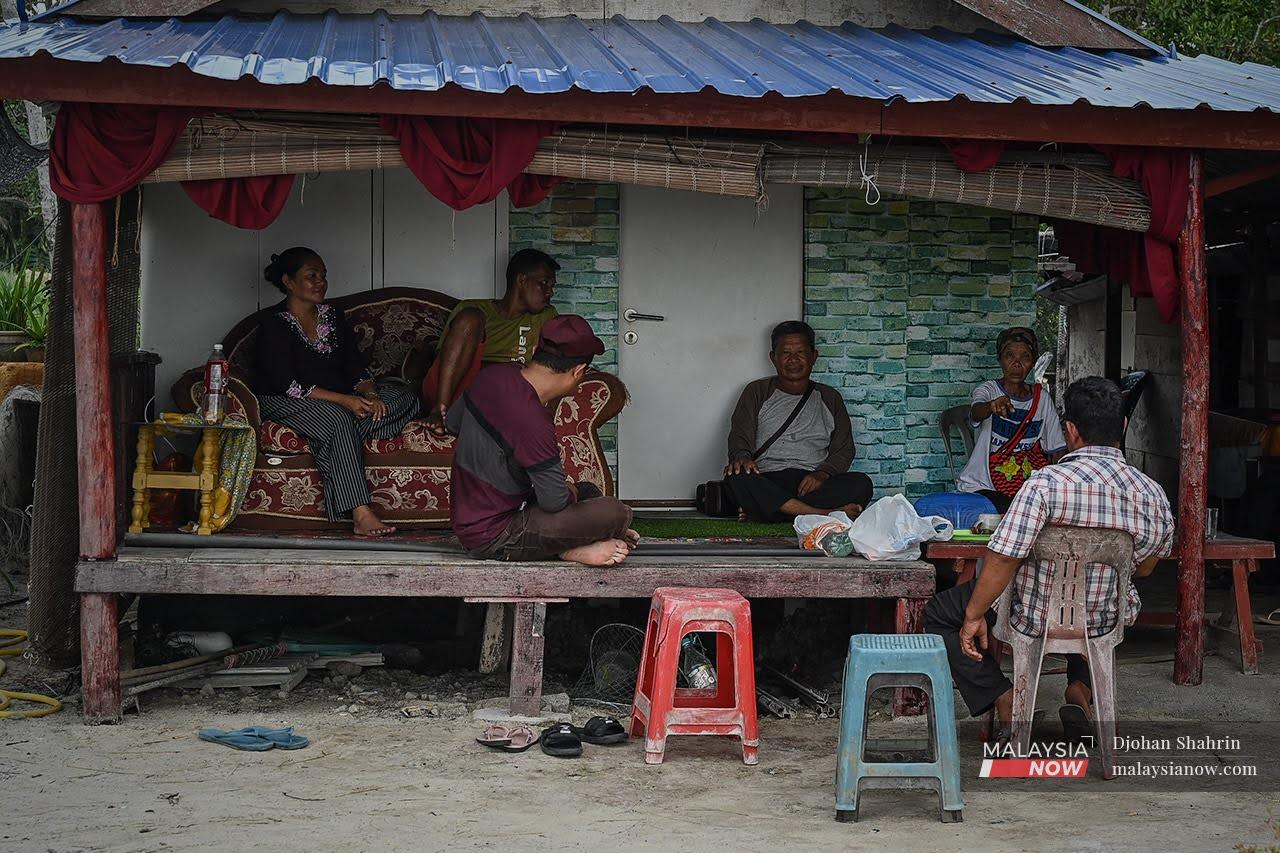Bagan Lalang eviction just the tip of the iceberg, says Orang Asli activist
The entire Mah Meri culture is in danger of disappearing, especially given the economic difficulties brought about by the Covid-19 pandemic, he says.
Just In
An activist has warned of bigger problems facing the Mah Meri Orang Asli community than losing their home, as a handful of villagers in Selangor continue discussions with state authorities over the eviction notice issued to them last month.
Rashid Esa, director of the Mah Meri Cultural Village, said the big question was not whether the land could be replaced or the issue resolved. Rather, it was the community’s very survival that was at stake, he told MalaysiaNow.
Rashid, who has worked with the community for decades, spoke of a continued pressure on the Orang Asli.
“They have no food now. They earn daily wages and their food stock has depleted as they can’t go to work due to the movement control order.
“Those in Bagan Lalang are just a handful,” he said.
He was referring to Kampung Orang Asli in Bagan Lalang, where a group of 13 Mah Meri are facing eviction from the land on which they had lived for some 20 years.
“Those in Bagan Lalang are just a handful.”
The land belongs to the Selangor government and Permodalan Negeri Selangor Bhd.
Over in Pulau Carey, located to the south of Port Klang, lives a larger group of 2,000 Mah Meri who work in oil palm plantations and hotels in addition to gathering natural resources in order to eke out a living.
Some 2,000 more live in nearby Sepang, Tanjung Sepat and other parts of Bagan Lalang.
Rashid, who works with a team to send food aid to the Pulau Carey families, said such assistance was only a temporary measure.
He added that it was not just their livelihoods at risk. He said their culture, including their expertise in wood carvings and their traditional dances, could go extinct as the cultural village had been closed since the start of the pandemic.
This had had a heavy impact on the progress it had made in promoting Mah Meri culture for the past 10 years, he said.
“Since the village was closed, they have been unable to sell their carvings to tourists while those who have the expertise are leaving the craft altogether since they have to do other things to survive.”
He said 40 workers at the cultural village had been laid off and had had no income for a year now.

“For 10 years, our workers have shifted their lifestyle to a modern one like ours. They can’t just go back to their traditional ways.
“Unlike other people who can drive Grab or go into direct selling when they are terminated, the Orang Asli who have been with the village have no boats to go to sea, nor the tools to gather food in the nearby forest or swamp,” he said.
He said his team had been trying to help the Mah Meri by sending direct food aid and encouraging them to maintain their traditional skills.
“We want to reopen our village once the pandemic is over, and we need our craftsmen back.”
On the situation in Bagan Lalang, he said a clear blueprint should be given on how the development planned for the site will take place, and how the Orang Asli should be compensated.
“Telling the public that the land does not belong to the Orang Asli is just an easy way out.
“The developer should be responsible,” he said, suggesting that compensation or company shares be given to the Orang Asli.
“It would be a step forward for them, so that when we tell them to move, at least they have a sense of dignity.”
Subscribe to our newsletter
To be updated with all the latest news and analyses daily.
